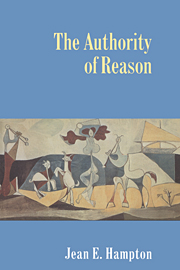Book contents
- Frontmatter
- Contents
- Editor's Preface
- Preface and Acknowledgments
- Introduction
- PART I SCIENCE AND OBJECTIVE NORMS
- PART II INSTRUMENTAL REASON
- PART III REASONS AND REASONING
- 7 Expected Utility Theory and Instrumental Reasoning
- 8 Expected Utility Theory and Consequentialism
- 9 Toward a “Postnaturalist” Theory of Reasons
- Bibliography
- Index
8 - Expected Utility Theory and Consequentialism
Published online by Cambridge University Press: 02 December 2009
- Frontmatter
- Contents
- Editor's Preface
- Preface and Acknowledgments
- Introduction
- PART I SCIENCE AND OBJECTIVE NORMS
- PART II INSTRUMENTAL REASON
- PART III REASONS AND REASONING
- 7 Expected Utility Theory and Instrumental Reasoning
- 8 Expected Utility Theory and Consequentialism
- 9 Toward a “Postnaturalist” Theory of Reasons
- Bibliography
- Index
Summary
In the last chapter, I developed a strategy defending EU theory as a representation of a global instrumental theory of reason, which tells us how we ought to satisfy a preference in a situation where we have multiple preferences. Does that strategy succeed? Relevant to this question are counterexamples and experimental evidence purportedly showing that human beings consistently violate the EU axioms. That evidence appears to show that at the very least, EU theory fails as a descriptive account of our global instrumental reasoning. And the violations of some of the EU axioms seem so intuitively reasonable that EU theory also seems to fail as a normative account of our (global) instrumental reasoning. But not only does this evidence indicate that EU theory fails as a theory of instrumental reasoning, more importantly from the standpoint of moral philosophy, I will argue that this evidence shows EU theory fails because it is “too consequentialist” in structure.
The term ‘consequentialism’ was developed in moral philosophy. Indeed, moral philosophy has long been split between those who advocate a consequentialist portrayal of moral justification and those who advocate a nonconsequentialist, or deontological, approach to moral justification. There are a number of different kinds of consequentialist and deontological positions, and a variety of points of disagreement, but one of the most important concerns the nature of moral reasoning.
- Type
- Chapter
- Information
- The Authority of Reason , pp. 251 - 287Publisher: Cambridge University PressPrint publication year: 1998



